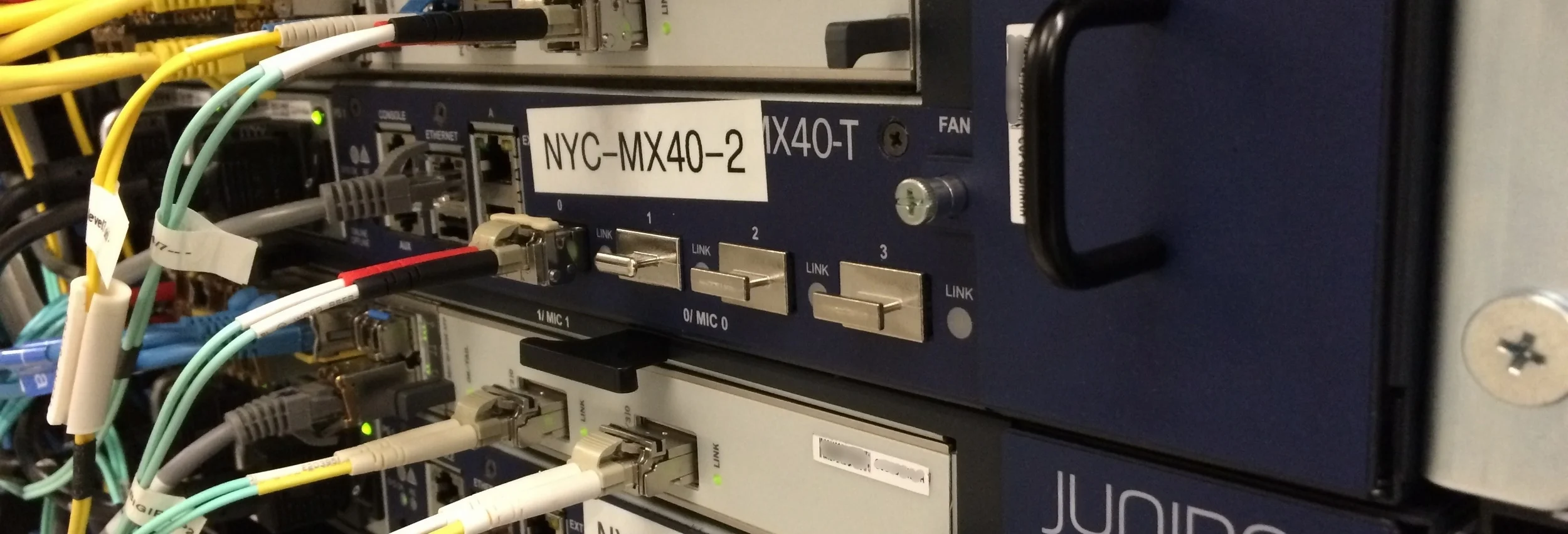Juniper MX SP Style Bridging
First you configure your interfaces to accept packets with the right VLAN tags:
Then configure a bridge domain that bridges these two:
Now you have a bridged VLAN 200 on these two ports.
Untagged / Access Interfaces
If you have an untagged "access" port that you want to bridge, you can do that too by using this syntax:
Then use ge-0/0/0.0 in your bridge configuration.
L3 Interface / Routing Interface
To add a L3 interface to the mix, first define an Integrated Routing and Bridging Interface (IRB) with your IP:
And then add this interface to your bridge:
That should complete your setup.
It's a bit more complex than the "normal" VLAN concept found on other switches/devices but it's also way more flexible. For example you could have another two ports that also have VLAN-ID 200 configured and they could have their own bridge, completely separated from the first bridge you just configured.
Juniper MX Enterprise Style Bridging
requires: family, interface mode, vlan-id
